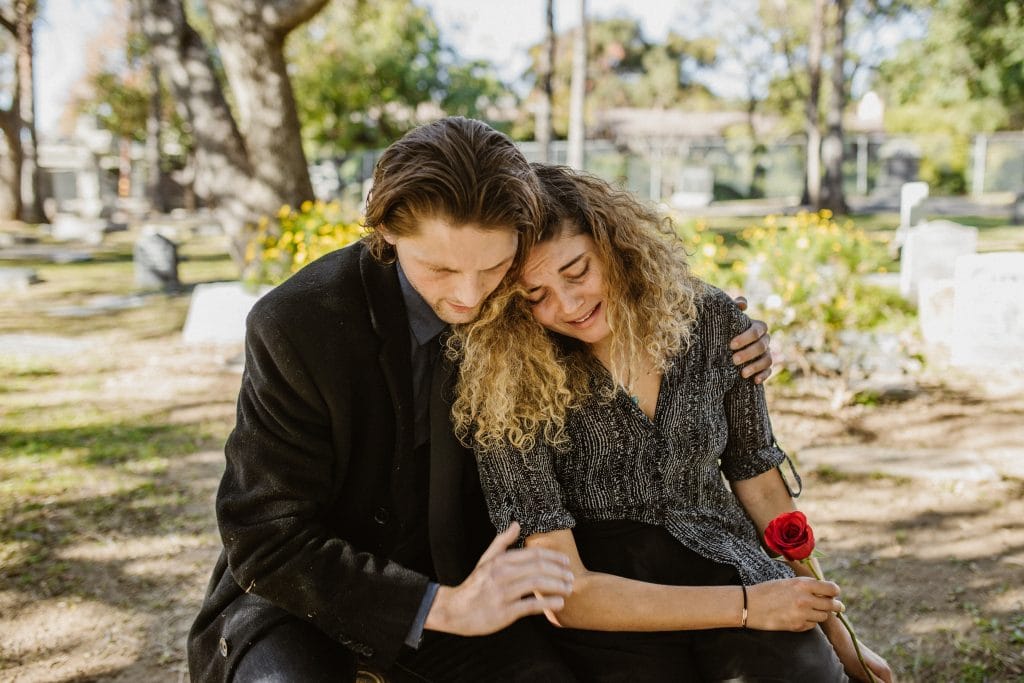On the Internet you can often find mention of five stages of accepting the inevitable (grief, loss): denial, anger, bargaining, depression, acceptance. We decided to check whether this theory has a scientific basis.
The five stages of accepting the inevitable are recalled in relation to anything: economy, HR, management, changes in the profession etc. Articles about this model can be found find in women's magazines, publications about palliative care, on medical resources, V blogs And Media. Sometimes this model use in a humorous way, even replacing stages to any other.
The five stages of accepting the inevitable (otherwise known as the Kübler-Ross model) first appeared in the 1960s. They were identified by a psychiatrist Elisabeth Kübler-Ross, who worked with terminally ill patients. She was terrified because most of the hospital staff did not understand what these people were going through and how to communicate with them to alleviate their condition. This inspired her to study the topic of dying. Kübler-Ross spoke with terminally ill patients, observed their experiences, communicated with their families and friends, and conducted seminars for medical students to raise awareness in this area. And in 1969, the psychiatrist collected her observations and wrote a book "On Death and Dying", where those same five stages of accepting the inevitable were first established.

The stages that Kübler-Ross identifies:
- Denial and isolation. Patients claim that there was a mistake, that the tests were mixed up, that the doctors are not competent enough, and tried to pretend that nothing was happening.
- Anger. Patients ask the question “Why did this happen to me and not to someone else?” They begin to get irritated and take their anger out on doctors, nurses and their loved ones, subconsciously blaming them for what happened.
- Bargain. Patients try to negotiate with fate, God or illness, making various promises to delay the inevitable.
- Depression. When the previous stages do not work and the disease does not recede, the dying fall into depression, which is aggravated by poor health, loss of attractiveness due to operations, and financial expenses for treatment.
- Acceptance. The patient is no longer angry and does not blame anyone, does not try to come to an agreement with fate. Often this stage is mistakenly considered to be positive changes, something joyful compared to previous stages. According to Kübler-Ross, this is simply a stage when the patient no longer has the strength to fight.
- Hope. This component, which is usually forgotten, is present at all stages of grief.
A few years later, a psychiatrist joined Kübler-Ross in studying grief. David Kessler, they co-authored another book about ways to cope with loss. It was published after the death of Kübler-Ross. Subsequently Kessler singled out one more stage:
- Search for meaning. A person begins to look for deep meaning in what happened to him, trying to make his death (loss, grief) not in vain.
Kessler notedthat the stages of accepting the inevitable are also observed in people experiencing the coronavirus pandemic. About this wrote and other psychologists.

It is worth noting that Kübler-Ross herself never claimed that her model was the only correct one or that all those who are terminally ill or experiencing grief must necessarily go through all five stages and in the sequence she derived. These were just her observations based on a relatively small sample.
The Kübler-Ross model has been criticized more than once by other psychiatrists over the past decades. First of all noted the lack of any long-term and representative empirical studies, as well as the fact that the model is based on representatives of only one culture in a fairly short period of time and may not be applicable to people of another culture several decades later.
Expert in gerontology, aging and death Robert J. Kastenbaum notedthat the existence of these stages as such has not been proven, nor has it been proven that dying people or people experiencing grief actually experience all five stages. In addition, Kastenbaum believes, the model does not take into account the influence of the immediate environment on the subjects being studied.
Yale University scientists spent three years talking to people who had experienced the loss of a loved one and published in 2003 results this research. Some people actually experienced grief according to the Kübler-Ross model, but a significant part of the results did not correspond to it at all.
George Bonnano, a professor of clinical psychology at Columbia University, summarized existing research based on thousands of subjects over 20 years, and presented conclusions in his book The Other Side of Sadness. He argues that there are no stages of grief, and everyone experiences loss or anticipation of the inevitable differently. Moreover, the absence of any symptoms is also the norm.
Thus, the five stages of accepting the inevitable are just one of the options for how people can experience grief, which is quite controversial from the point of view of other researchers. In addition, this model is often distorted by people who have not read Kubler-Ross's work, but have only heard something about it.
Half-truth
Read on the topic:
- Elisabeth Kübler-Ross. About death and dying
- Is it true that any habit is formed in 21 days?
- Is it true that psychosomatics does not exist?
- Did Sigmund Freud say, “Sometimes a cigar is just a cigar”?
If you find a spelling or grammatical error, please let us know by highlighting the error text and clicking Ctrl+Enter.






